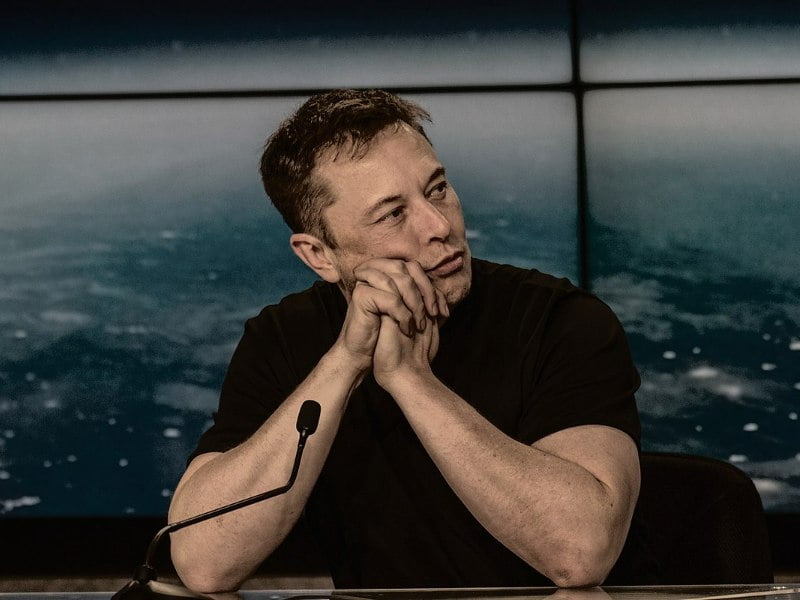After an uncertain back and forth with Twitter over a potential acquisition of the company, Elon Musk successfully concluded negotiations to acquire Twitter for US$44 billion (A$61 billion).
Many are concerned over the implications of this buyout, with Twitter being a core news dissemination and communication channel, and Musk’s motivations over its takeover being less than magnanimous.
The acquisition stoush was classic Musk – very public, it had the dramatic supercuts of a telenovela, and had shareholders, journalists and many pundits being flustered the whole way through.
Twitter has become a central part of the public square, favoured by journalists and news junkies, unavoidable if you’re a politician or a public figure. Whether this is a good thing or not has become irrelevant as its role in breaking news and information dissemination has become solidified.

What is at stake therefore in having any single person controlling Twitter is that they then have responsibility for this key pillar in our communications ecosystem.
We’ve seen how disastrous it can be if platforms with centralised leadership aren’t held to account or do not acknowledge their responsibilities in this space – Meta’s L’Enfant terrible Mark Zuckerberg continuing to ignore its toxic platform, YouTube’s deliberately invisible leadership conveniently ignoring its issues.
Twitter’s Dorsey and his management team, for all their faults, seemed to at least understand and acknowledge their responsibilities as part of our public square.
Dorsey articulated his criticism of Facebook’s ‘free speech’ argument by restricting political advertising on Twitter during the troubled US election period, declaring that platform amplification “isn’t about freedom of expression” but about “paying for reach”.
Twitter has had some progressive interventions over the years, including being the first to de-platform former president Donald Trump, creating aggressive policies against Covid-19 misinformation, and regularly developing tools aimed at improving the quality of public communication on Twitter.
There are legitimate causes for concern therefore, in how Twitter’s direction, policy agenda and product development will be changed under Musk, who is not known as a steady hand.
Musk has a habit of grandstanding and firing off chaotic missives on Twitter, including during the Thai rescue mission to save 12 trapped boys from a flooded cave in 2018, which resulted in a defamation case after Musk called one of the lead rescuers a “pedo guy”.
He also tweeted about taking Tesla private and that its stock price was too high, resulting in a lawsuit from the US Securities and Exchange Commission.
His Twitter trigger finger also involves some of the largest and most pressing global issues today, regularly inserting himself into serious topics and debates. He taunted the World Food Program to explain (in tweets) how $6 billion in donations could solve world hunger.
During the pandemic, Musk consistently tweeted out inaccurate observations which undermined public health orders, calling the virus “dumb”, forcing his employees to work during lockdown, saying kids are “essentially immune” to the virus, and promoting vaccine hesitancy.
He likened Canadian Prime Minister Trudeau to Hitler after Trudeau released emergency orders to manage Canada’s anti-vaccine and anti-lockdown trucker convoy, which sparked similar protests around the world.
While some, namely Musk’s supporters admire his candour, his bravado and his ego and will defend him voraciously online, there are questions about whether these qualities are appropriate for someone with leadership over such critical communication infrastructure.
Musk is a controversial figure, more prone to divide rather than bring people together.
In our already fractured public square, what we desperately need are leaders and solutions which develop more common understanding rather than individual grandstanding, more cohesion rather than dissolution and more community rather than tribalism.
Under Musk, Twitter and therefore our public communication will likely fracture further.
Jordan Guiao is a Research Fellow at The Australia Institute’s Centre for Responsible Technology.
Do you know more? Contact James Riley via Email.


I think this article successfully casts Elon Musk in a completely unrealistic negative light. When his actions are viewed objectively it easy to see Elon’s outlook is highly altruistic. True ultruism is not proven by what people say but by what people do.
None of his business ventures, with the possible exception of Zip2, are the types of businesses that someone primarily motivated by financial gain would start. As ventures they were simply far too risky. There was no electric car industry when Elon started Tesla. Re-usable rockets? That was only theory until he started SpaceX.
In every interview I’ve ever seen with Elon and I’ve watched hundreds (being an innovation buff) he has expressed sincere altruistic intentions for the protection, preservation and progress of humanity and his actions and investments are in complete accord.
Twitter has become hopelessly corrupted by ideology that seeks to silence both mainstream and dissenting viewpoints. One of the worst instances of censorship was that of Brett Weinstein’s non-partisan campaign group – Articles of Unity.
The town square requires free speech to progress understanding through the debating of different viewpoints. In the absence of this mechanism for self-correction, human sensemaking gets caught in eddies and becomes highly susceptible to our (as a species) authoritarian tendencies. That is, without free speech all we can expect is a bubble of ideology and censorship and that’s truly dangerous.
Unfortunately, Twitter needed saving and Musk, true to his altruistic track record, stepped up. He also bought it for a bargain – good for him. Musk’s acquisition of Twitter is a boon for the public square, for progress and for humanity.